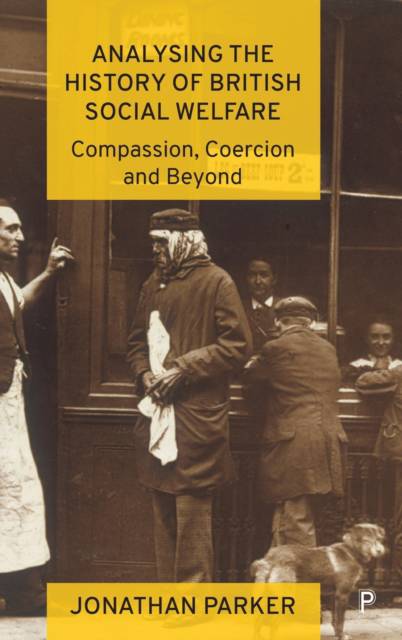
- Afhalen na 1 uur in een winkel met voorraad
- Gratis thuislevering in België vanaf € 30
- Ruim aanbod met 7 miljoen producten
- Afhalen na 1 uur in een winkel met voorraad
- Gratis thuislevering in België vanaf € 30
- Ruim aanbod met 7 miljoen producten
Analysing the History of British Social Welfare
Compassion, Coercion and Beyond
Jonathan ParkerOmschrijving
This book offers insights into the development of social welfare policies by exploring the interconnections between policies and practice throughout history.
It challenges tacitly accepted arguments that favour particular approaches to welfare, such as conditionality and eligibility. It provides examples of enduring social assumptions which influence the way we perform social welfare, such as the equivocal position of women in social welfare and the unintended consequences of reforms such as Universal Credit.
By identifying continuities in welfare policy, practice and thought, it offers the potential for the development of new thinking, policy making and practice.
Specificaties
Betrokkenen
- Auteur(s):
- Uitgeverij:
Inhoud
- Aantal bladzijden:
- 248
- Taal:
- Engels
Eigenschappen
- Productcode (EAN):
- 9781447363699
- Verschijningsdatum:
- 30/05/2023
- Uitvoering:
- Hardcover
- Formaat:
- Ongenaaid / garenloos gebonden
- Afmetingen:
- 156 mm x 234 mm
- Gewicht:
- 526 g

Alleen bij Standaard Boekhandel
Beoordelingen
We publiceren alleen reviews die voldoen aan de voorwaarden voor reviews. Bekijk onze voorwaarden voor reviews.









